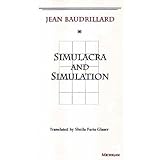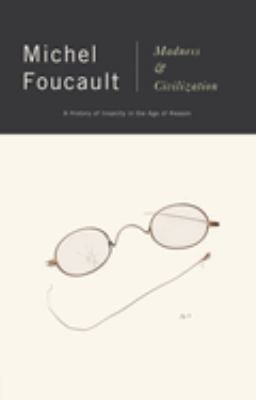
Review by Sam Swicord

Review by Sam Swicord

Review by Sam Swicord
A lecture by Sartre after his work 'Being and Nothingness'.

Review by Sam Swicord
Foucault's work on 'epistemes'. A great work for anyone interested in the history of science and philosophy of science.

Review by Sam Swicord

Review by Sam Swicord
An interesting philosophical work on Baudrillard's belief in the 'murder of the real'.

Review by Sam Swicord
Review by Sam Swicord
Not as interesting as much of his other work.

Review by Sam Swicord
Foucault's history of the concept of 'madness' in Europe.

Review by Sam Swicord
An explanation for the 'birth' of the prison and related historical assessment.

Review by Sam Swicord
A good overview of the philosophers conflicting views concerning language and politics.

Review by Sam Swicord
Foucault's history of the concept of sexuality. It is often considered to be the first work in queer theory.

Review by Sam Swicord
The most brilliant philosophical work I've ever read.

Review by Sam Swicord
A summary of Ayn Rand's political views. Includes historical overview of capitalism's effects on child poverty in Great Britain and the homesteading of land in America.

Review by Sam Swicord
A collection of Ayn Rand's views on ethics. Rand argues that an entity's values are determined by its objective life-needs, the requirements of survival for entities of its kind, and ethics is a requirement of human survival, and that the choice to live is not morally obligatory.

Review by Sam Swicord
Rand holds a “measurement-omission” theory of abstraction; that is, she regards concept-formation as a matter of grouping items together on the basis of a commensurable characteristic while omitting the specific measurements (e.g., grouping red objects together while omitting specific shades of red). Such abstraction does not falsify its objects, as in omitting specific measurements we do not claim that they do not exist, we merely fail to specify them. The similarities on the basis of which we form our earliest concepts are perceptually identified; more sophisticated concepts involve conceptually identified similarities.
Review by Pi
YES! So confusing and complex and marvelous and detailed and far-out! I am unstoppably excited for the next one. I liked Capacity, but not quite as much and this. I admit I read this one first spurred on by a conversation between roommates who were reading it together. Even attempting to engage in conversation about this book will mystify the eavesdroppers.
Read it slowly, paying attention to EVERYTHING.

Review by Pi
I frickin love this book. Going so deeply into Robert Sund's life and style, it almost seems cliche when I read this book over again. And over again. But i can't stop. This book is an almost complete poetic history of Robert Sund's life in Washington, first as a teenaged wheat worker on the eastside and leading to minimalistic zen-like nature poems of drunken bees and healing birds. I say almost complete because there is another book that was published recently "Notes from Disappearing Lake" which I also love so much that I gifted it to my dad for father's day and now he's addicted. Enjoy!
Review by Alex Morrow
The beginning of the book was a 3 for me, and the latter half was a 4. I still feel like, when it boils down to it, it would be a tad kind to give the book overall a 4.
At first it came off as dry and preachy, a bit painful to read. I felt like many of the side stories were utterly unnecessary, thrown in as a sort of fluff. Or to say, "Look how silly and wacky this kid is. Look. Please look." And I quickly got tired of the way the main character spoke.
But I won't lie: I finished the second half in one sitting. It did a great job of hooking me, and dropped most of the habits I found so irksome in the beginning. Once it became a survival story, I was much more interested. The ending was fantastic as well.
As far as style goes, this reading is "light". It's not particularly difficult. This is something you take casually, something assigned to freshmen in high school.

Review by Alex Morrow
This is my favorite Jeff Lemire read so far. The art was stunning, as per usual. This read really shows off his ability to illustrate highly detailed backgrounds, which the Essex County collection was a little lacking.
Daddy issues abound in the narrative, as is Lemire's signature of sorts.
It was all so beautifully done that I cried at several junctures... Cried like a little weenie...
Read this.